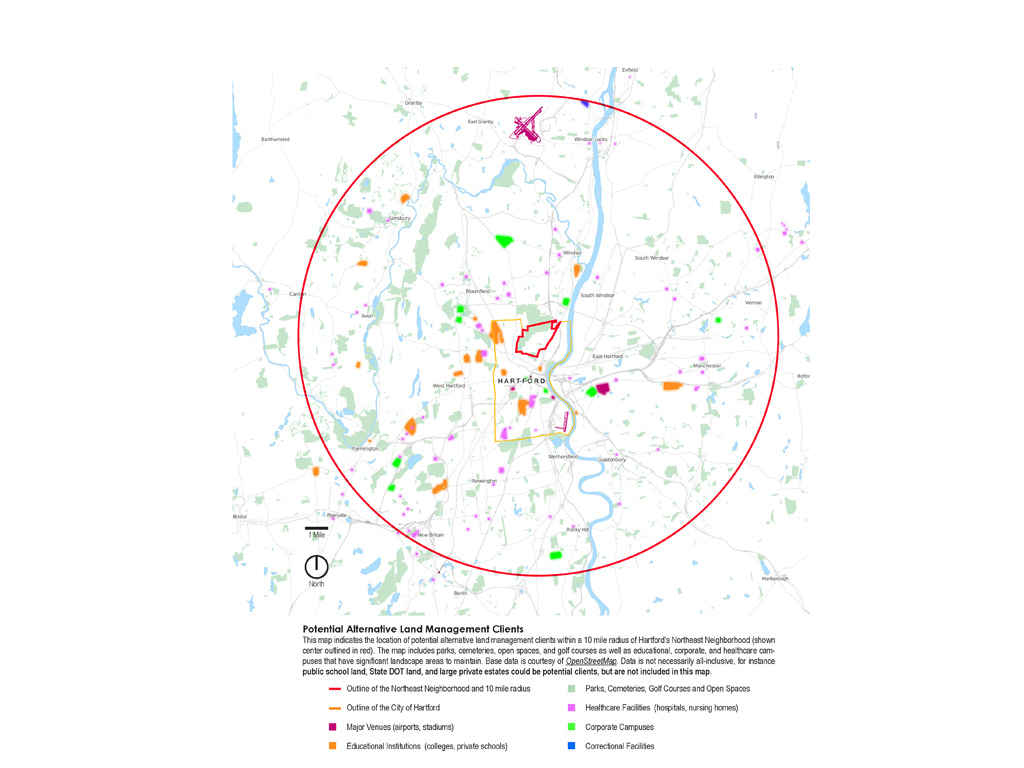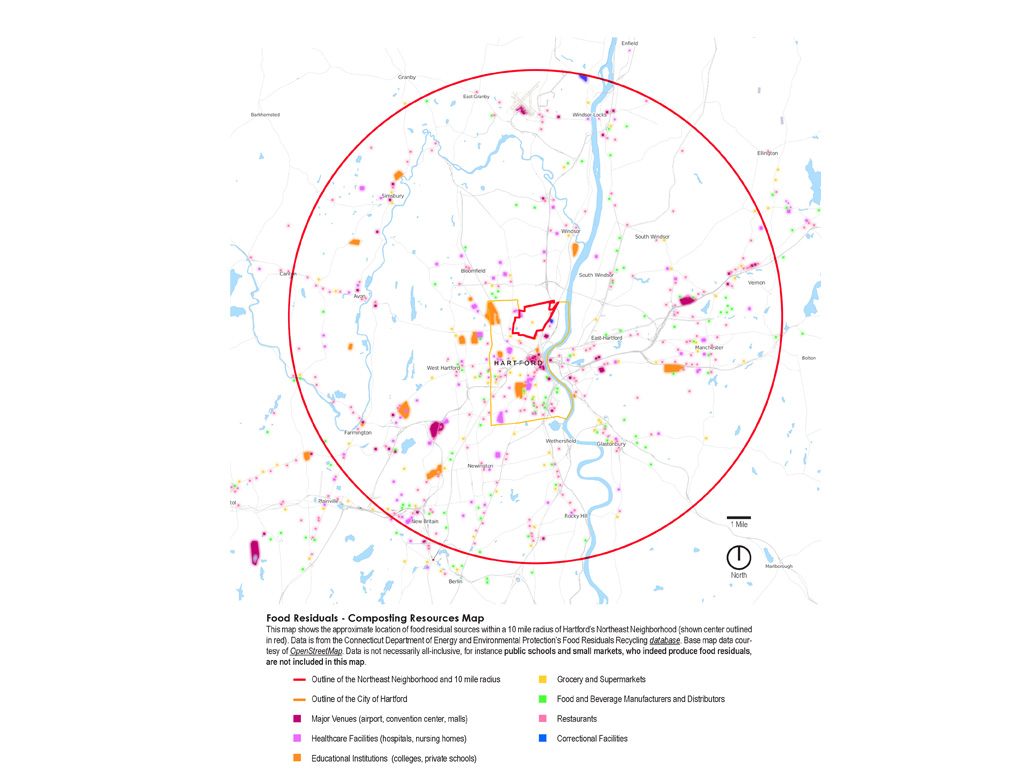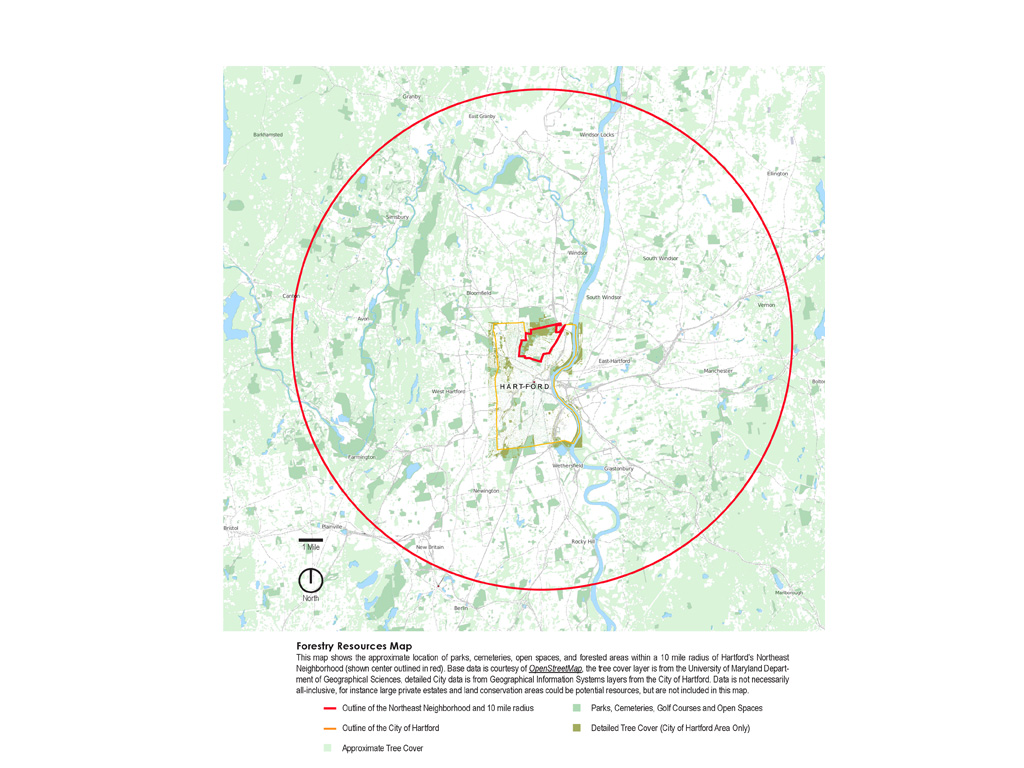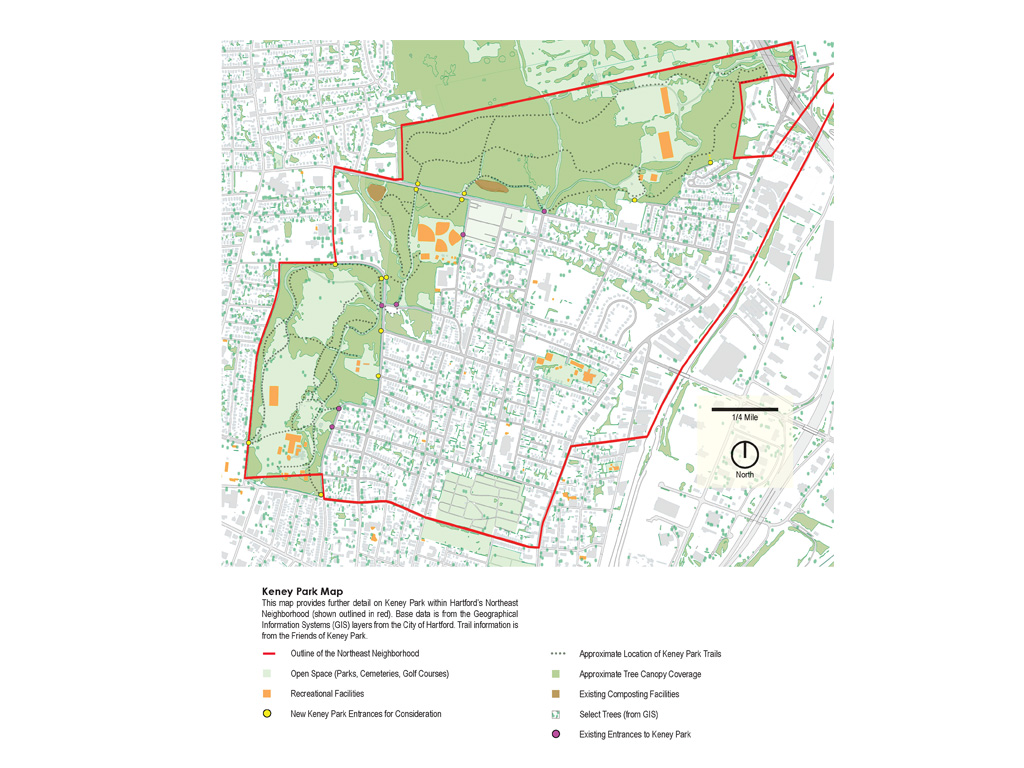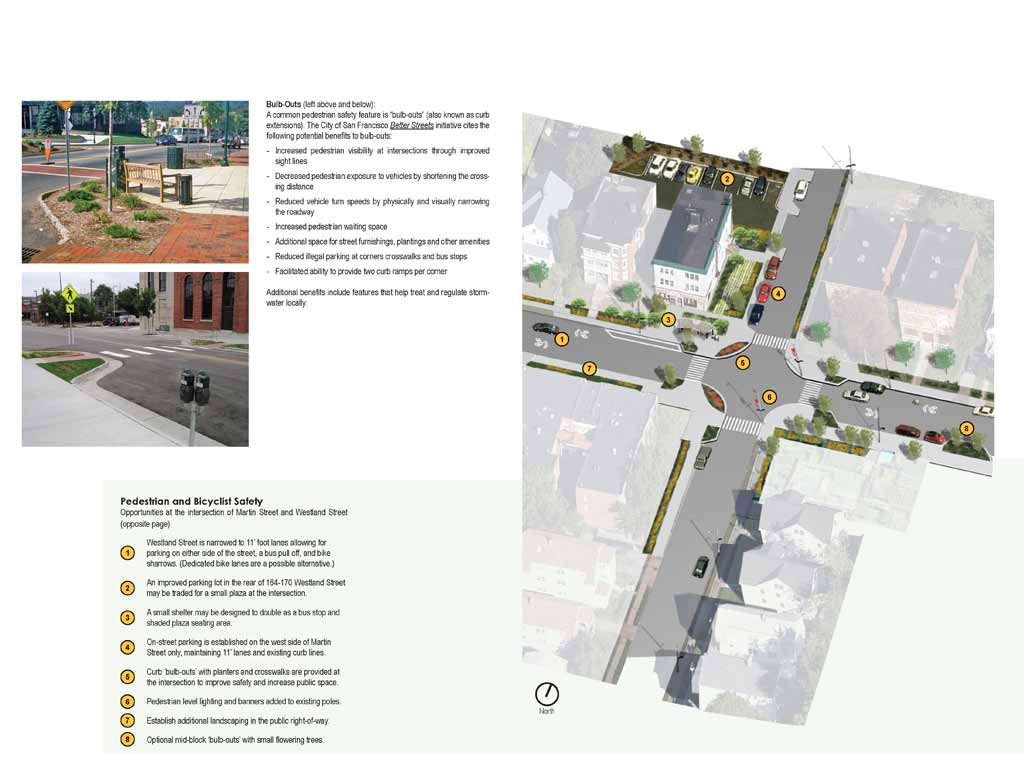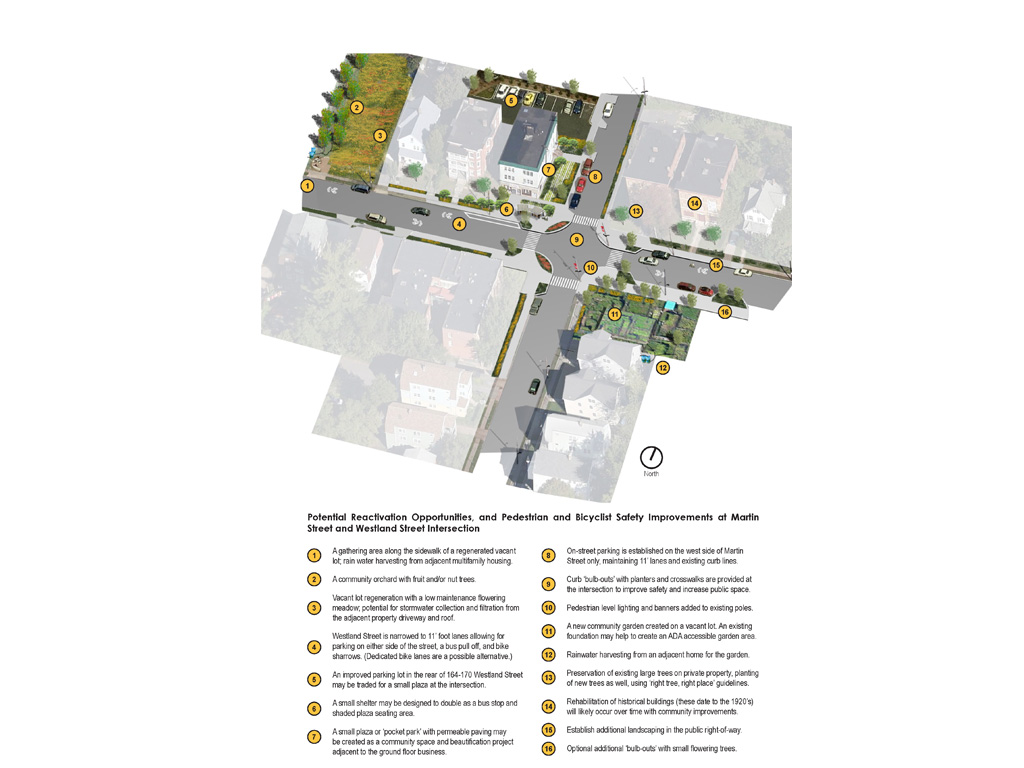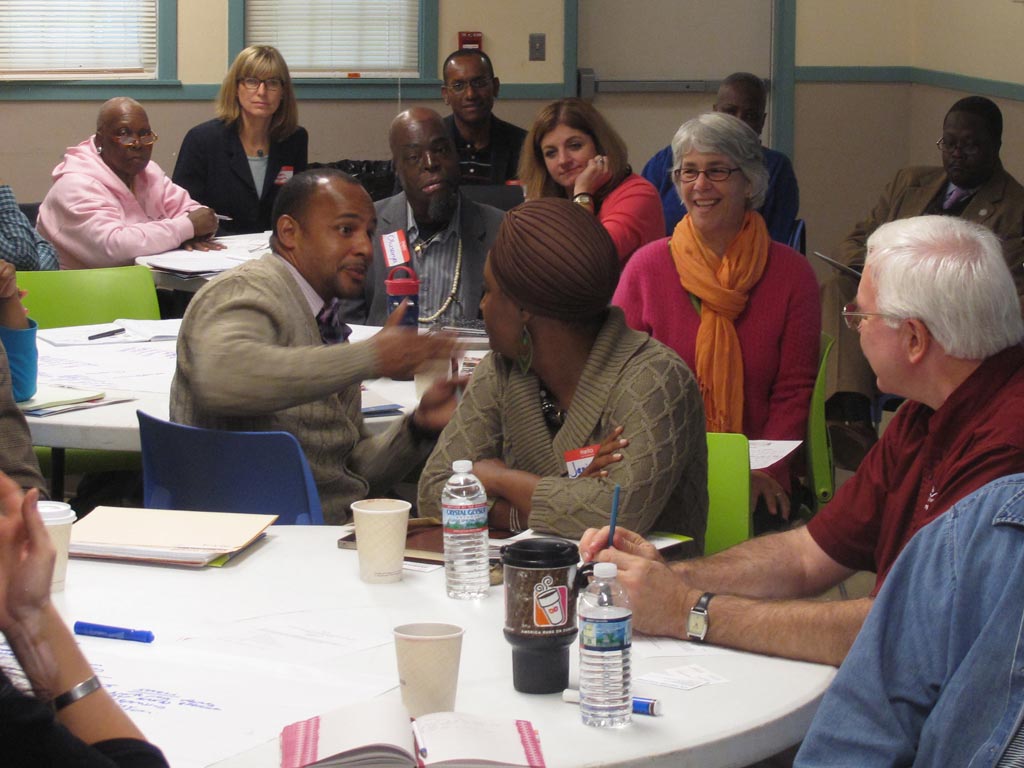Michael Singer Studio is working in close collaboration with Community Solutions on a health driven community based sustainability plan for the Northeast Neighborhood of Hartford, Connecticut. The plan is directly informed by a neighborhood Health Impact Assessment through the Health Impact Project of the Pew Charitable Trusts and the Robert Wood Johnson Foundation.
A collaborative team worked with stakeholders to develop the Northeast Neighborhood Sustainability Plan. The plan includes opportunities that are specific, actionable, plausible, and that respond to residents, and was developed in tandem with a neighborhood Health Impact Assessment. A Health Impact Assessment is a process used to identify the health consequences and benefits of new public policies, plans, projects, and programs using a data-driven approach. This enables the development of strategies that enhance the health benefits of proposed policies and interventions and minimize adverse effects. The neighborhood sustainability planning process and the Health Impact Assessment were intertwined in order to reach a deep understanding of neighborhood level health concerns and to promote actions within the urban built and natural environment that can improve health.
The report summarizes opportunities specific to the Northeast Neighborhood that improve health and safety, increase employment opportunities for residents, and contribute to overall well-being in the community. Several core principles guide the development of the various opportunities outlined in the report: site specify, local economic opportunity, health and the environment, community priorities, local ownership and sustained prosperity.
The full report can be viewed here.
Artist / Designer: Michael Singer
Singer Studio Planning Team: Jonathan Fogelson and Jason Bregman
Community Solutions: Rosanne Haggerty, Gina Federico Muslim,
Anna Marie Creegan, and John J. Thomas
Health Impact Assessment Technical Advisors: Michelle Rushing, Elizabeth Jane Fuller,
and James Dills of the Georgia Health Policy Center
Health Impact Project: Bethany Rogerson

